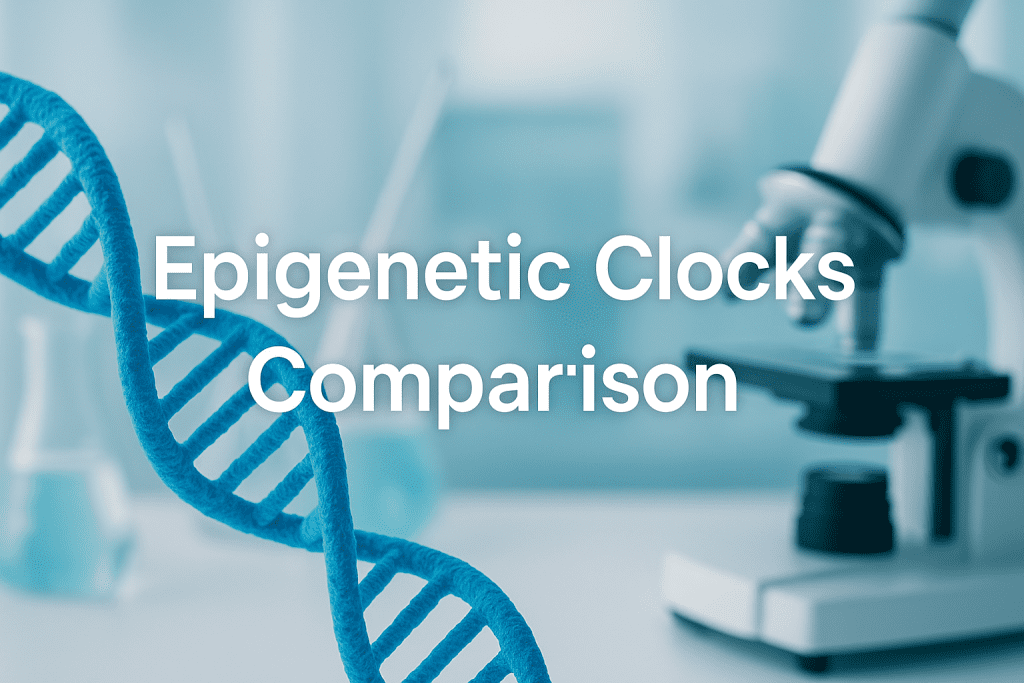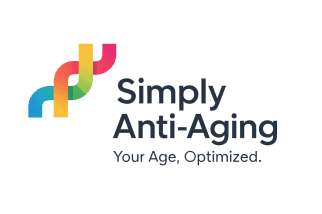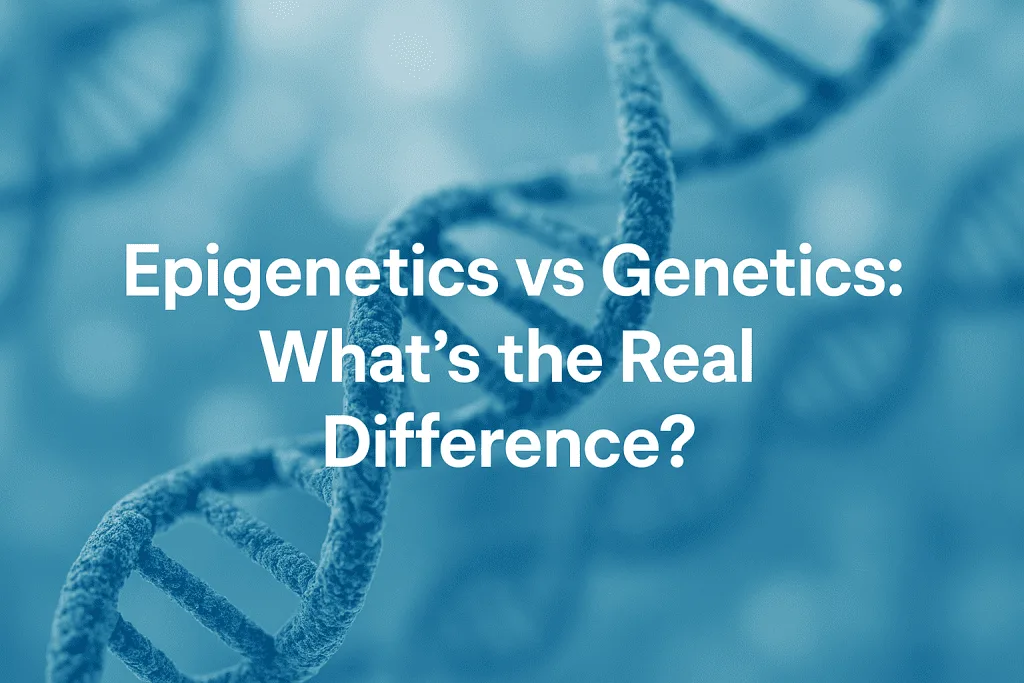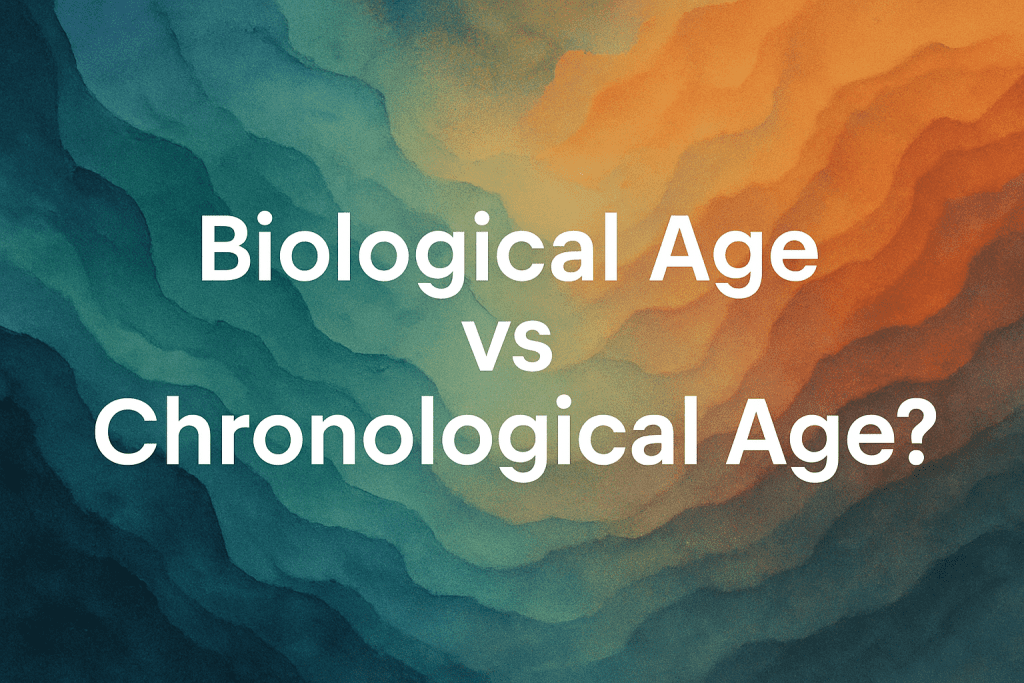
Epigenetic clocks comparison is becoming essential for anyone curious about how fast their body is really aging. These tools don’t just look at your birthdate, they analyze your DNA to estimate your true biological age based on chemical markers like DNA methylation.
In other words, they reveal how your lifestyle, stress, sleep, and environment may be speeding up or slowing down your aging process.
This guide compares the top epigenetic clocks, including Horvath, DunedinPACE, PhenoAge, CheekAge, and GlycanAge, so you can find the one that fits your health goals.
What’s an Epigenetic Clock, Exactly?
Epigenetic clocks analyze DNA methylation, a natural chemical process where small molecules called methyl groups attach to your DNA. Over time, these methylation patterns change in predictable ways.
Scientists have figured out how to use this info to build clocks: algorithms that can “read” your methylation and tell you how fast your body is aging.
That’s your epigenetic age.
If your epigenetic age is higher than your real age, it could mean you’re aging faster. Lower? Your body’s aging slower than average. Cool, right?
The Main Epigenetic Clocks You Should Know
Each clock has a slightly different purpose. Let’s compare the most important ones, and the kind of person each might be best for.
🧪 1. Horvath’s Clock
🎓 Best for: Beginners who want a classic, simple biological age result
This is the original epigenetic clock. Developed in 2013, it uses 353 key DNA sites (called CpGs) that change predictably with age, no matter the tissue. Blood, skin, saliva… it works everywhere.
✔️ Gives you a biological age in years
✔️ Works for almost anyone
✔️ Widely used in academic research
Try it via: TruAge
Limitations: It shows you how old you are, not how fast you’re aging or your health risk.
⚡ 2. DunedinPACE
🧪 Best for: Biohackers and people testing anti-aging habits
This one is different : it doesn’t give you an age.
It tells you your rate of aging. Are you aging faster than average (1.05 years per year)? Or slowing things down (0.89 years per year)?
✔️ Based on 20+ years of real-world health data
✔️ Detects small changes from lifestyle tweaks
✔️ Super precise and designed for longitudinal tracking
Try it via: The DNA Company
Limitations: The number it gives isn’t always intuitive. But it’s great for seeing if your changes (fasting, NAD+, peptides, etc.) are working.
🔬 3. GlycanAge: Immune System Aging Tracker
🧬 Best for: People focused on inflammation, stress, and immune health
GlycanAge doesn’t rely on DNA methylation like other epigenetic clocks. Instead, it measures how your immune system is aging — by analyzing glycans, sugar molecules attached to your antibodies (specifically IgG). These glycans change depending on your lifestyle, stress, inflammation, and hormonal shifts.
✔️ Tracks immune age, not just general biological age
✔️ Highly sensitive to short-term lifestyle changes (like stress or diet)
✔️ Includes a 1-on-1 consultation with a health expert to help interpret your score
Try it via: GlycanAge test kit (finger-prick blood sample)
Limitations:
It doesn’t measure DNA methylation or give you a pace-of-aging score like DunedinPACE. Instead, it’s focused on inflammation and immune system health — which is a major part of aging, especially in midlife and menopause.
✅ Best Use:
GlycanAge is ideal for tracking how stress, sleep, or hormone shifts are affecting your immune system and inflammation levels. It’s a great complement to methylation-based tests if you want a more complete picture of your biological age.
❤️ 4. PhenoAge (Levine)
🩺 Best for: Those tracking healthspan and disease risk
Instead of focusing on calendar age, this clock looks at how your body is functioning. It’s trained on blood biomarkers like glucose, CRP, and albumin, then matches that to methylation.
✔️ Strongly linked to lifespan, disease risk, and frailty
✔️ Reflects your biological health, not just age
✔️ Powerful predictor of mortality
Try it via: Elysium Index
Limitations: The output isn’t just “how old are you,” but how your biology stacks up health-wise. Less straightforward, but more meaningful if you’re concerned about long-term disease prevention.
😊 5. CheekAge
🧴 Best for: Lifestyle-driven users and first-timers
This newer model works on cheek swab samples, not blood. It’s designed to be sensitive to lifestyle: exercise, diet, sleep, smoking, stress.
✔️ Super easy to use (cheek swab only!)
✔️ Great for tracking how habits affect your body
✔️ Highly predictive of health outcomes like mortality risk
Try it via: TallyAge
Limitations: It’s new. Results aren’t comparable to blood-based clocks. But it’s an excellent start — especially for regular tracking or casual users.
Quick Summary: Which Clock Is Best for You?
| Clock | Shows… | Best For | Sample Type |
|---|---|---|---|
| Horvath | Your biological age | New users, general wellness check | Blood or saliva |
| DunedinPACE | Your aging speed | Biohackers tracking supplements/habits | Blood only |
| PhenoAge | Healthspan & disease risk | People focused on long-term health | Blood |
| CheekAge | Lifestyle-linked aging | Beginners, those wanting easy testing | Cheek swab |
| GlycanAge | Immune system aging | Stress, inflammation, hormone balance focus | Finger-prick blood |
FAQs
What is an epigenetic clock test and how does it work?
An epigenetic clock test measures biological age by analyzing DNA methylation markers at specific sites on your genome. These methylation patterns change predictably as we age. The test compares your results to large population datasets to estimate how old your body appears biologically, which may differ from your chronological age.
How accurate are DNA methylation tests for estimating biological age?
DNA methylation tests are among the most reliable tools for assessing biological aging. Many peer-reviewed studies have shown that advanced clocks like Horvath’s Clock, DunedinPACE, and PhenoAge can predict age-related outcomes, health risks, and mortality with high accuracy. However, results can vary depending on the tissue tested and the specific clock used.
Which epigenetic clock is best for tracking lifestyle changes?
The DunedinPACE clock is currently the most sensitive to short-term lifestyle changes, including diet, exercise, and supplementation. CheekAge, a newer buccal-cell-based clock, is also designed to respond to modifiable behaviors and is suitable for regular re-testing. These models are ideal for users tracking interventions over time.
What is the difference between biological age and pace of aging?
Biological age reflects how old your body appears based on cellular data. Pace of aging measures how quickly your body is aging at the moment. A person may have a biological age lower than their chronological age but still be aging rapidly, or vice versa. Both metrics offer useful but distinct insights.
Can epigenetic clocks predict healthspan or disease risk?
Yes. Advanced models like DNAm PhenoAge are designed specifically to correlate with healthspan, frailty, and disease risk. These clocks are trained on clinical biomarkers and have been shown to outperform basic age estimators when predicting outcomes like cardiovascular disease, cancer, and overall mortality.
What sample types are used in biological age tests?
Biological age tests typically use blood, saliva, or cheek swabs. Blood-based tests are often considered the most precise for clocks like DunedinPACE and PhenoAge. Cheek swab tests, such as those using the CheekAge model, are less invasive and more convenient but may not be suitable for all types of aging analysis.
How often should you take a biological age test?
For users tracking progress or testing the impact of lifestyle changes, it is recommended to retest every 3 to 6 months. This allows enough time to observe meaningful shifts in biological age or pace of aging. One-time testing is also useful as a baseline for long-term monitoring.
Are biological age tests useful for healthy individuals?
Biological age tests are increasingly used by healthy individuals interested in prevention and long-term wellness. These tests can provide early insights into how lifestyle, stress, and environmental exposures are affecting the aging process, even before traditional clinical signs appear.
What are the most popular biological age tests available today?
TruAge – Advanced panel with DunedinPACE, PhenoAge, organ age, and more
Elysium Index – Includes PhenoAge and system-level aging from saliva
NOVOS Age – Tracks pace of aging (DunedinPACE) + telomeres
TallyAge – Uses CheekAge clock via cheek swab for lifestyle tracking
GlycanAge – Measures immune system aging through glycan profiling
The DNA Company – Combines trait genetics + DunedinPACE + health coaching
EasyDNA – Affordable saliva-based methylation age test
DoNotAge – Saliva test with age + inflammation, hearing, and memory
myDNAge – Uses Horvath’s original epigenetic clock
MyToolbox Genomics – Tracks both DNA traits and epigenetic aging
Nucleus Genomics – Full genome sequencing (no epigenetic age)
Sources
- Horvath S. (2013). DNA methylation age of human tissues and cell types. Genome Biology.
- Belsky DW et al. (2022). DunedinPACE: A DNA methylation biomarker of the pace of aging. eLife.
- Levine ME et al. (2018). An epigenetic biomarker of aging for lifespan and healthspan. Aging (Albany NY).
- Shokhirev MN et al. (2024). CheekAge: A buccal epigenetic clock linked to lifestyle and mortality.
- Harvard Medical School (2016). Epigenetic Clock



